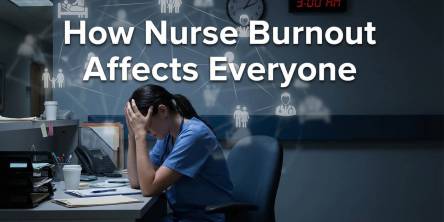A Quick Mobility Scooter Safety Guide

Mobility scooters provide a feeling of liberty to people with mobility problems. Scooters eclipse the effectiveness and facility of wheelchairs and walkers to give comfort and convenience. Because of this, mobility scooters are quickly becoming one of the devices today, utilized by both young and old.
Its increase in popularity, along with the dearth of safety information, has led to an increase in mobility scooter-related accidents. Scooters are a recent innovation, and people haven't had the time or opportunity to acquaint themselves with its rules of usage and safety.
Whether you are looking to buy a scooter on the internet, or already have one, reading and understanding these pointers will guide the way to a productive and secure time with your scooter.
1. Match the scooter to your needs
The first question you need to ask before getting a mobility scooter is: Am I capable of working one? Consult your physical therapist or your doctor if you're able to safely drive a scooter, to assess.
Basic requirements for surgery include good visual and sensory acuity, concentration, coordination, upper body strength and balance.
Don't lie about your abilities. You will not only be endangering yourself, the people around you would be vulnerable to undue threat too.
2. Practice often
Practice makes perfect, and what's true for many talents is true for scooter driving. You need to practice regularly and get used to the sense of moving around using a mobility scooter. Focus on the health as well as your safety. Read up on traffic signs you are likely to come across when you're outdoors so that you'd prepared.
3. Make yourself visible
Make certain drivers and pedestrians can see you. It is not sufficient to paint your mobility scooter a bright shade. Add lights and reflective strips in strategic areas throughout your scooter to guarantee maximum visibility, particularly during the nighttime. Ensure you are highly visible from every angle and side.
4. Follow local rules and regulations
Assess whether it's allowed in your area to operate mobility scooters in general public. There also may be added legislation and ordinances regulating the use of scooters. Research about local speed limits and be sure to follow them. No exceptions.
5. Maintain your mobility scooter
Have your scooter seen by a technician once in a while. A simple checklist to follow: the lights are working, the battery is charging, the tires are correctly inflated, electronic equipment is in good shape, and the security features are working. Cultivate a fantastic working relationship with a professional tech you trust to guarantee regular and effortless access to repair and maintenance.
6. Always wear a helmet
People have died from accidents involving a mobility scooter, and head injuries are the most common cause. Ride your scooter with reassurance by wearing a sturdy helmet, especially when outside.
7. Don't assume
It's true, you've covered your mobility scooters with reflective strips and lighting but that does not ensure against crashes from some other people. Be aware of your surroundings particularly when there are a lot of cars and people. Make eye contact with motorists and pedestrians to signal that you can see them and that they can see you.
8. Stay on sidewalks
Roads are for vehicles. A scooter, like it or not, is not a car or truck. Adhere to the sidewalk whenever possible. Driving on the street with the traffic is a recipe for disaster.
9. Use pedestrian crossings
When you have to cross the road, only do so at a correctly designated and marked pedestrian crossing. Trying to cross the street without warning can take motorists by surprise and they could hit you.
10. Know the area
You are able to follow the most convenient and safe routes utilizing online maps. Keep in mind that the places of kerb ramps and pedestrian crossings, as well as streets without sidewalks so that you'd know where and when to avoid them.
Similar Articles
Explore the biggest health trends that shaped 2025, from personalized nutrition to matcha and recovery—plus what wellness trends are coming in 2026.
Winter is a season when the body needs extra nourishment, warmth, and immunity support. According to Ayurveda and modern nutrition science, dry fruits play a vital role in maintaining health during cold weather.
Most people think health problems start suddenly. One day you feel fine, the next day something is wrong. In reality, most health issues develop slowly .They grow quietly in the background while life keeps moving.
The start of a new year is a natural time to pause, reflect, and think about how you want to feel in the months ahead. For those over 60, a fresh start does not mean setting unrealistic resolutions or making drastic changes.
Picture this: You're parked at your workspace, battling to focus on what should be a straightforward five-minute task. That afternoon slump? It's demolishing you today.
Joint pain and arthritis are common health issues that tend to become more intense during the winter season
Discover the benefits, challenges, and future of locum medical jobs. Learn how locum recruitment agencies support flexible, diverse career opportunities for healthcare professionals seeking dynamic work environments.
Burnout in the healthcare environment is a significant and growing crisis.
NAD+ therapy restores cellular energy, enhances metabolism, and promotes anti-aging by supporting DNA repair and improved overall vitality.









